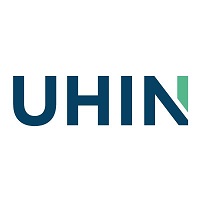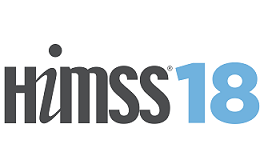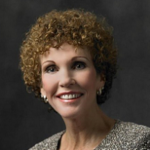
Day 9 of the 12 Days of Christmas Posts has us recognizing and highlighting the impact of Women in Health IT. From inspirational CEOs to organizations focused on girls and tech to female run healthcare startups and even a look ahead to women at HIMSS, we have a little something for everyone.
Dr. Denise Hines, Executive Director of GaHIN
Denise Hines, the CEO of eHealth Services Group, Executive Director of the Georgia Health Information Network and HIMSS North America Board Chair, had quite a successful year in 2017 and isn’t showing any signs of holding back in 2018. Hines is nationally recognized as an expert in state government in health information exchanges. In November Dr. Hines was recognized for her accomplishments as a woman in technology in the state of Georgia and received the Woman of the Year in Technology – Small Enterprise Award, from Women in Technology (WIT). Dr. Hines has participated in hundreds of public speaking events and in 2018. Dr. Hines will be speaking at HIMSS 18 and WIT’s January Forum among numerous other engagemnets.

Teresa Rivera, President/CEO of UHIN
Another woman in charge of a successful HIE is Teresa Rivera, President and CEO of the Utah Health Information Network. As President and CEO, Teresa is responsible for UHIN’s strategic direction and financial viability. After joining UHIN in 2007, Teresa became President in 2012 and Chief Executive Officer in 2014. Her focus is service, employee development and community involvement, which she believes is essential to business success.
Active in several industry organizations, Teresa is a board member of the Utah chapters of HIMSS and AAHAM, as well as the Strategic HIE Collaborative and the Utah Digital Health Commission.
Teresa is a frequent speaker at local and national conferences. She has presented at AHIMA, WEDI, AAHAM, the Utah Dental Association, Western States HealtheConnection, the Utah Business Summit, and the ONC Annual Conference.
Girls Who Code
According to their website, Girls Who Code was founded five years ago with the belief that computing skills are a critical path to security and prosperity in today’s job market. What began with 20 girls in the heart of New York City, Girls Who Code will reach 40,000 girls in all 50 U.S. states by the end of this year. The overarching mission is simple but powerful, to close the gender gap in technology. Learn more about this organization and help support it by reading HealthcareNOW Radio’s posts about their fundraising efforts and important mission.
2018 Startups Founded by Women
AngelList (@angellist), a platform for startups to raise money online, recruit employees, and apply for funding, asked investors from top venture capital firms to identify a few women-led startups they were most enthusiastic about. We highlighted two of the startups from the list that focused on healthcare.
Maven
According to Maven, women in America make 80% of all health decisions for themselves and their families. But the current healthcare system is not exactly female-friendly.” Katherine Ryder, Maven’s founder and CEO, wanted to change this and so she started Maven, a network of doctors, nurse practitioners, mental health providers, and specialists in all areas of women’s and children’s health, who are directly accessible via video appointment or private message—whether it’s for a prescription or just for peace of mind.
Verge Genomics
Alice Zhang is CEO and co-founder of Verge Genomics, a company that uses machine learning and human genomic data to defeat neurodegeneration. Using the same breakthroughs that power Google’s search engines, the company has discovered a way to map out the hundreds of genes that cause diseases like Alzheimers, ALS, and Parkinsons, and then find drugs that target all of the genes at once. Alice has been at the forefront of systems biology research for over seven years and was recently named to Forbes 30 Under 30.
 Women in Health IT at HIMSS18
Women in Health IT at HIMSS18
Women were out in full force at HIMSS17 and this year’s conference promises to be no different. Women will be speaking at and hosting various sessions, round tables, networking events and discussion panels. We’ve rounded up a few not to be missed events if you are a woman making her way up the health it ladder.
- HIMSS18 Women in Health IT Networking Reception
March 18, 2018
6:30 pm – 8:00 pm PT
Palazzo Pool
Don’t miss the chance to join your female colleagues for cocktails, networking and thought leadership at the HIMSS18 Women in Health IT Reception. Be a part of the industry’s most powerful gathering of women innovators, leaders and entrepreneurs shaping and transforming health through technology today. Share stories, recognize and celebrate your peers – form valuable connections that will last a lifetime. - Women in Health IT Mentor Meetup
March 8, 2018
9:30 am – 10:30 am PT
Lido 3104 in the Venetian-Palazzo-Sands Expo Center
Meet with influential women in health information and technology to increase your leadership opportunities and expand your knowledge. Engage in thought-provoking conversations that address not only gender-related challenges, but job-specific issues and career planning tips. Network with experienced executives, emerging leaders, and peers outside of your organization for diverse and innovative discussions.
Women Leading the Way
 From the Department of Radiology in the Stanford School of medicine, Dr. Sylvia Plevritus, is the Principal Investigator at the Cancer Systems Biology Laboratory. The CSBL unites clinical researchers, computer scientists, engineers and statisticians with the common goal of developing a layered view of cancer progression in order to improve early detection and treatment strategies. Dr. Plevritus’ research focuses on computational modeling of cancer biology and cancer outcomes.
From the Department of Radiology in the Stanford School of medicine, Dr. Sylvia Plevritus, is the Principal Investigator at the Cancer Systems Biology Laboratory. The CSBL unites clinical researchers, computer scientists, engineers and statisticians with the common goal of developing a layered view of cancer progression in order to improve early detection and treatment strategies. Dr. Plevritus’ research focuses on computational modeling of cancer biology and cancer outcomes.
 The Chief Consumer Officer at Humana, Jody Bilney, is responsible for advancing and enhancing the company’s main initiatives, including making healthcare less complicated. She sets the strategic direction that ensures consumers’ interests are always on the forefront of management’s ideas. “We respect the high level of trust between doctors and nurses, and the people they care for. How can we support these relationships by simplifying the basics, such as referrals and prescriptions? And facilitate the more challenging conversations around behavioral health, chronic conditions, food insecurity and loneliness? We believe the best way to get these answers is to go directly to doctors and nurses, just as we’ve been going directly to consumers.”
The Chief Consumer Officer at Humana, Jody Bilney, is responsible for advancing and enhancing the company’s main initiatives, including making healthcare less complicated. She sets the strategic direction that ensures consumers’ interests are always on the forefront of management’s ideas. “We respect the high level of trust between doctors and nurses, and the people they care for. How can we support these relationships by simplifying the basics, such as referrals and prescriptions? And facilitate the more challenging conversations around behavioral health, chronic conditions, food insecurity and loneliness? We believe the best way to get these answers is to go directly to doctors and nurses, just as we’ve been going directly to consumers.”
